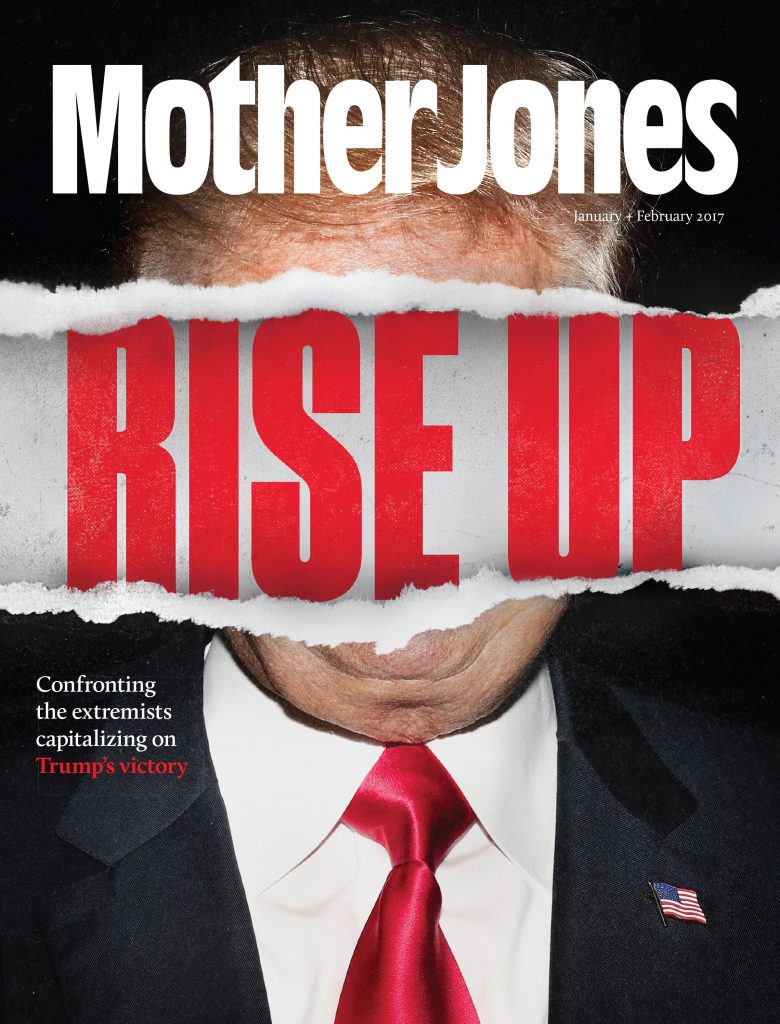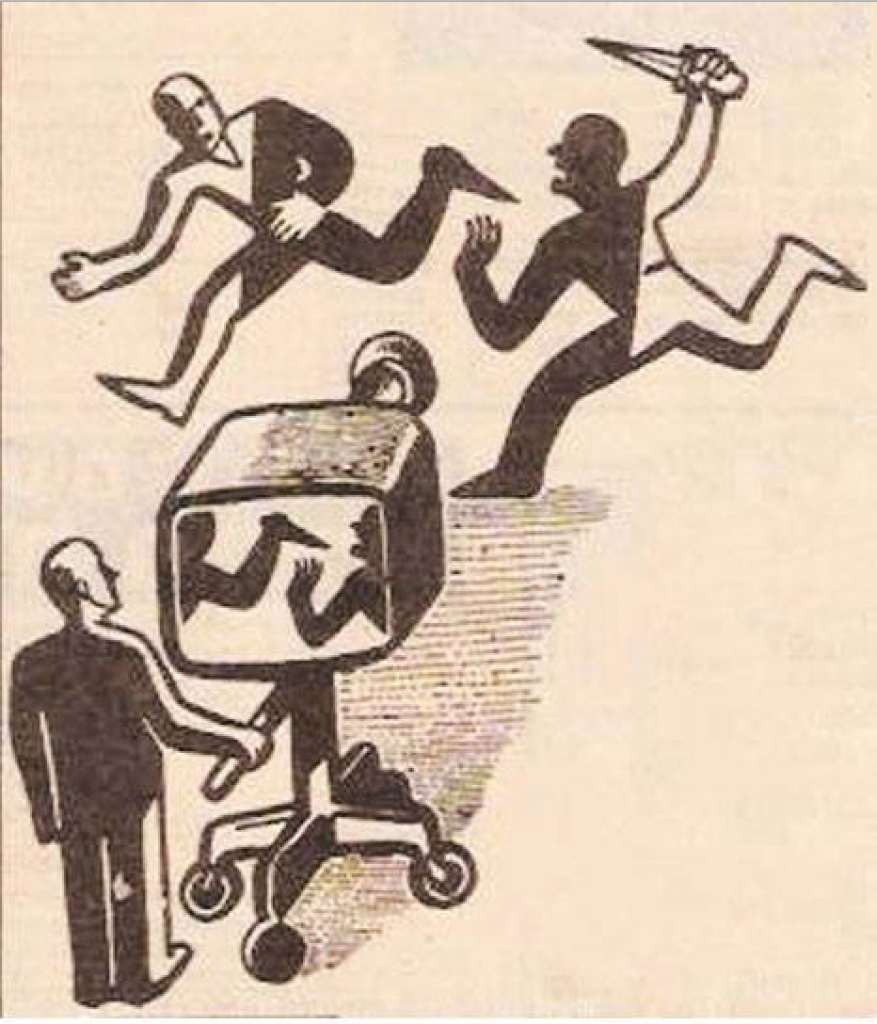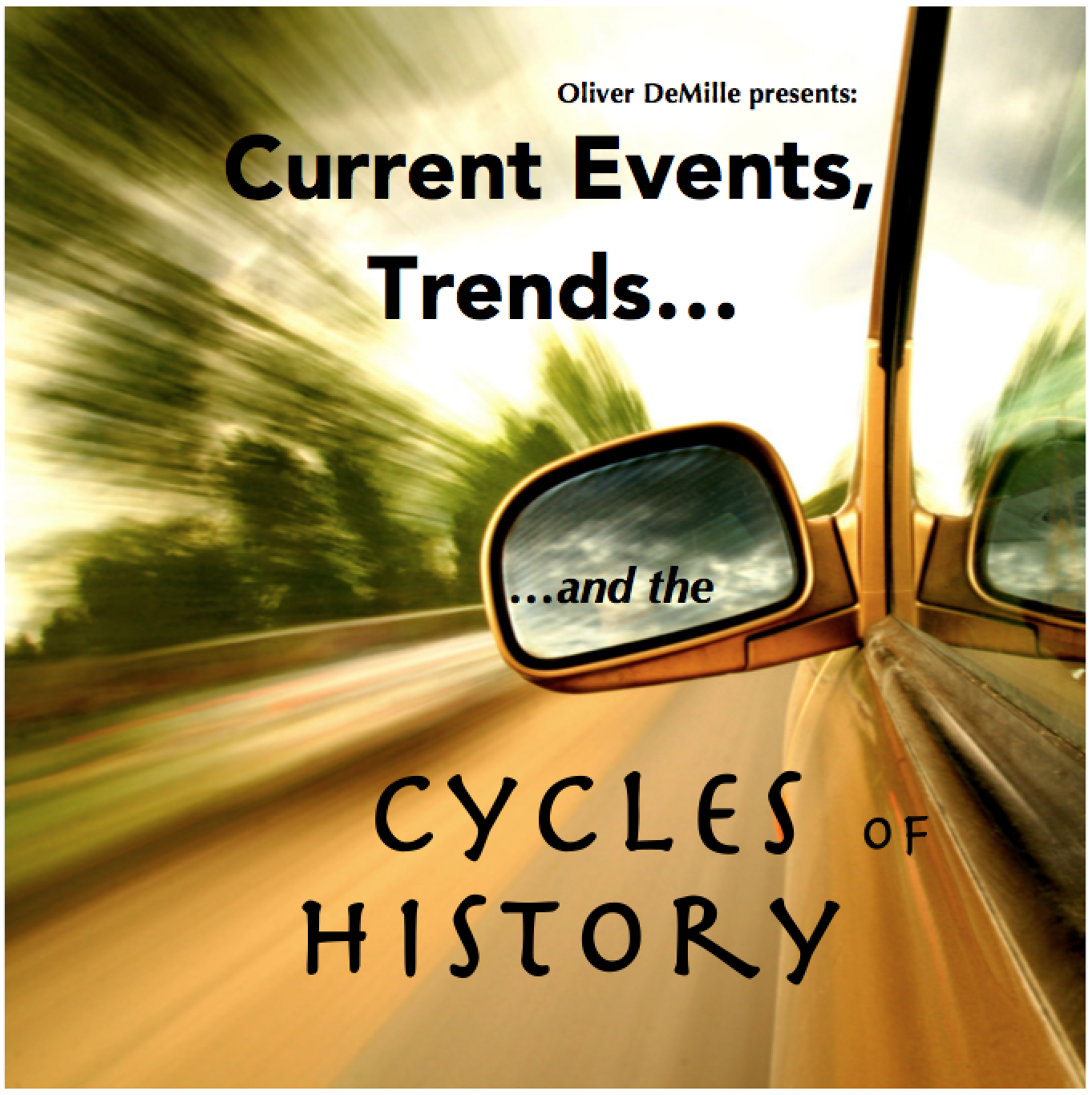How to Get the Real News
April 27th, 2017 // 8:39 am @ Oliver DeMille
“Wait!” she said. “Where did you hear that? That’s the opposite of what the news is telling people.”
“Of course it is. I didn’t get this from the news. Or social media.”
Long pause…
“Where did you get it?”
Part I: Conclusion
 For many years I’ve recommended that people get their news in a special way: read 2-3 liberal publications, and also 2-3 conservative ones. Pay close attention, and note how both sides spin things. Watch for their assumptions and media agendas. Think about what you read, and draw your own conclusions.
For many years I’ve recommended that people get their news in a special way: read 2-3 liberal publications, and also 2-3 conservative ones. Pay close attention, and note how both sides spin things. Watch for their assumptions and media agendas. Think about what you read, and draw your own conclusions.
But in the Trump era, it’s no longer this simple. The media has become so biased, so angrily bent on waging war against the current Administration, that even the conservative press frequently joins the mainstream media in its attacks—or in fighting them.
Objectivity in media reports is almost extinct. Manipulative spin is now the one constant in our national–and much of the local–media.
So, where should today’s concerned citizen get the news? The answer to this question is enlightening. In the new era of media—what could arguably be called the post-journalistic era—it’s not just about where you get the news. It’s more about how you read the news. Those who read it the right way will learn what’s really going on. Those who don’t, won’t….
Part II: Example
 I open the magazine and read the first article. It’s a liberal magazine, and, like always, I’m enjoying it. Reading what people who disagree with me have to say about the current state of the world is invigorating.
I open the magazine and read the first article. It’s a liberal magazine, and, like always, I’m enjoying it. Reading what people who disagree with me have to say about the current state of the world is invigorating.
When I was younger, it sometimes made me angry. A decade later it made me want to argue. Nowadays, I find myself laughing a lot. Or, once in a while, surprised by a new idea that deserves serious consideration.
For example, the first magazine I read begins with a long editorial about how the economy is “on the rise.” Markets are getting more good news than they have since 2008, and not the “media-spin economic upturn news” that Washington loved during the Obama years, but that always turned out to be false. This time it’s about a real upturn it seems.
Still, the editorial warns, the danger is that people are going to think that things like Brexit and actions of the Trump Administration are responsible for the good economic news. These are all coincidences, apparently, according to the article. Any intelligent person, the magazine seems to be communicating, will clearly realize that there is little or no correlation between Obama/European Union policies and the economic malaise that accompanied them, and the a significant economic upsurge following Brexit/Trump.
My grin turns to laughter. Are they serious? No correlation? Funny. Ironic, but humorous. The same magazine issue has the following question on the front cover: “Is the pope Catholic?” Note that the word “pope” isn’t capitalized. The article takes this question seriously—analyzing the ways the current Pope is rehashing many ideas long considered sacrosanct at the Vatican. This part isn’t funny. Interesting, and important. But I’m pondering, not laughing.
Another article proclaims: “From deprivation to daffodils… All around the world, the economy is picking up.” The cause of this, we are assured once again, has nothing to do with Brexit or conservative policies. In fact, we’re told, these things caused “jitters” and kept the economy from improving sooner.
In the same magazine, we are warned about populist uprisings from the Netherlands, Mexico, and Scotland—all part of a “dangerous” trend. (In fairness, if you favor the elite classes and a system that benefits elites above all others, it actually is a dangerous trend.)
 I finish this magazine and pick up the next one. Its purpose, apparently, is to find clever and original ways to criticize Donald Trump and anyone who didn’t happily vote for Hillary Clinton or Bernie Sanders. A very popular hobby these days.
I finish this magazine and pick up the next one. Its purpose, apparently, is to find clever and original ways to criticize Donald Trump and anyone who didn’t happily vote for Hillary Clinton or Bernie Sanders. A very popular hobby these days.
But this publication does it in such cerebral language that it’s really fun to read—as if reading it, just soaking it all in, must mean you are one of the smart people, the enlightened, the few, the wise. I do enjoy the creative, engaging writing, even as I find myself disagreeing with much of the content.
I start laughing again. After all, the articles work so hard to sound impartial, journalistic, even erudite. But their frustration and anger with the last election, and the current Administration, shows through on nearly every page.
For example, I read paragraph after paragraph of seemingly objective, unbiased prose (“Just the facts, ma’am, just the facts…”), then I run into words like “vengeful,” “binge,” “vindictive.” The reader is being swayed by largely journalistic writing peppered with emotional triggers. I like it. I mean, it’s interesting, and funny. Besides, the American people are smart enough to see right through this kind of bias, whatever elites think of them. Still, this kind of spin is an art, and the articles I’m reading are skillfully crafted to sway their reader—just like most of the television media.
Pundits on the Right try to do this as well as those on the Left, but the Left has more true artists—masters of this process. Good for them. Seriously. I’m genuinely impressed. Conservatives really do need more effective artists, and more appreciation for well-crafted symbolism.
The End of the Expert
On the less artistic, more direct side of things, one article calls President Trump: “an untruthful, vain, vindictive, alarmingly erratic President.” My first thought is that this is mean-spirited. But wait. I re-read the list of criticisms more carefully. Actually, I tell myself, most of this is fairly accurate, with one exception: What liberals call “untruthful” in Trump is often more a case of inarticulate.
President Trump frequently uses imprecise language, to the point of confusing. It’s a wonderful blessing for his opponents. But I don’t think he knowingly lies as much as the media claims (not in the way career politicians so frequently lie: “If you like your health care provider, you can keep your health care provider” or “insurance premiums will go down,” or “the Benghazi attack was caused by a video made in California,” or “I did not have sex with that woman.”)
But the other things on the list are fair game. Vain. Vindictive. Erratic. The President has exhibited all of these traits at times. I’m laughing again as I ponder this twist—because the real joke is on elites. Seriously: Why did the American people elect someone who is so openly vain and vindictive at times?
This is pretty funny, when you think about it. Liberals want these things to convince Americans that he shouldn’t be president. But those who elected him don’t really care about these things.
In short, liberals seem to want a president they can look up to, hold up as a role model, even canonize (e.g. FDR, Obama). Like medieval courtiers at the palace, they want to put their king on a pedestal. “He’s such a good and great man. She’s such a good and great woman.” They want Josiah Bartlett back in the White House. Or at least Michael Douglass. Or, better still, Kevin Klein’s “Dave”.
Conservatives aren’t thinking of anything so lofty. They don’t need a prophet or a saint in the Oval Office. They just want a president who will reboot the economy and make us safer in the world. Even if he acts like a jerk sometimes.
Liberals don’t seem to get the joke. It’s funny. Think about it: the voters in a majority of states preferred someone who is sometimes vain and vindictive over the elite’s favorite choice—a lifetime politician who checked off all the boxes and did everything the Establishment considers necessary to be in the Oval Office. The voters wanted the exact opposite. The irony is rich.
I finish the second magazine and take a long, deep breath before picking up the next one. But something I just saw keeps nagging me, so I go back to the magazine and look for a certain ad.
Ah…there it is. A promotion for online courses from Julliard. Open to all. “Learn from the Julliard faculty,” the ad proclaims, “classes include…Music Theory 101, Sharpen Your Piano Artistry…. No audition required.” I can hardly believe it. Doesn’t this fly in the face of the elite prime directive: “Rule By Experts—In All Things”? Do we really live in an age where MIT, Harvard and Julliard offer open enrollment classes to everyone? What happened to rule “of the experts, by the experts, and for the experts”? Elites are using technology to promote the appearance of democracy while still focusing on elite rule in every sector.
I open the third periodical in the pile. The lead article picks up right where the other magazine left off: “How Americans Turned Against Experts.” I study this article closely, taking notes in the margins, and then I read a half-dozen others. Apparently, the people just aren’t all that impressed with rule by the experts anymore. (“What have all those experts done for us?” millions are asking. “And why can’t they fix our national problems? What’s taking so long? In fact, why do things keep getting worse in so many ways? If these Ivy-trained experts with all their lofty titles and salaries are so good for America, why don’t they fix things?”)
Cause and Effect?
Finally, I pick up the last magazine in today’s stack. Several of the articles are intriguing. For example, I read: “Poverty has profound effects on the size, shape and functioning of a young child’s brain. Would a cash payment to parents prevent harm from the experience of being poor?” At first blush, it is sad that economic struggles have negative effects on early childhood. It is also not surprising that progressives think passing out money would fix this problem—easily and effectively.
But there’s more to this than initially meets the eye. I’m reminded of the economic idea of “helicoptering”: if the economy is struggling, dump cash from helicopters to poor families. They’ll spend it, and this will provide increased demand, supply, more jobs, and an improved economy. Of course, economists don’t suggest literally throwing cash out of helicopters (like turkeys on WKRP in Cincinnati), but rather depositing money directly into the accounts of people below a certain income level.
Conservatives tend to reflexively balk at such proposals, because they believe in the law of unintended consequences. In other words, paying people without asking them to work for it makes more people want to do nothing, and more citizens become increasingly dependent on government handouts—leaving the productive people to fund it all. Not good for society.
 On the flip side, I like to point out to conservative friends that one of the early proponents of such financial “helicoptering” was Milton Friedman. Why? In truth, the direct cost of giving money to poor parents is far less than the amount currently spent by governments to provide all the services they and their children receive.
On the flip side, I like to point out to conservative friends that one of the early proponents of such financial “helicoptering” was Milton Friedman. Why? In truth, the direct cost of giving money to poor parents is far less than the amount currently spent by governments to provide all the services they and their children receive.
If we’re going to offer a lot of socialist programs, let’s at least be efficient.
The real answer is to get rid of socialism altogether. Besides, in the long term, there’s a deeper problem. The idea of giving cash to poor parents in order to help their kids either assumes that the parents will spend it in ways that actually address the problem, or assumes that the government will monitor such spending and force parents to use it “effectively” (an escalation from helicopter parenting to “helicopter government”).
Reading the article even more closely, it becomes clear that there “are dramatic differences from person to person.” Meaning: Some people raised in poverty have normal or even above-average brains, but on average they are smaller, less developed. I’m not laughing anymore. This is deep, and important. The biggest challenge seems to occur where single parents are forced to work so much to pay the bills that there is little time for interaction with young children. The negative consequences last for generations.
Surely our society can find ways to deal with this. Sadly, in our modern world, any talk of real problems seems to turn into demands for more government programs–as if government is the only way to fix anything.
We’re all at fault here: liberals tend to want government to solve everything, and conservatives often fail to provide non-governmental solutions to real challenges that should be addressed by the private sector. Both sides just end up pointing fingers and criticizing, while the problems remain (or grow).
The article provides a lot of interesting details and proposals. I don’t agree with everything I read, but it makes me think outside the box. I finish the magazine and lean back in my chair.
The New News
 We have a major problem today with media, but it’s not what most people think. The biggest issue is the fact that few of us are reading enough news. Forget the electronic news. And forget newspapers. Both are too trapped in today’s 24-hour news cycle—and the race for ratings. We need to read bigger ideas, and from a variety of sources.
We have a major problem today with media, but it’s not what most people think. The biggest issue is the fact that few of us are reading enough news. Forget the electronic news. And forget newspapers. Both are too trapped in today’s 24-hour news cycle—and the race for ratings. We need to read bigger ideas, and from a variety of sources.
Readers of quality news magazines and journals are less easily manipulated than those who get their news from TV or social media. Such readers can more adroitly identify spin or media agendas and see right through them—then grin, or laugh, or decide to study more about a certain topic.
If you’re getting most of your news from TV, newspapers, online headlines, or social media—consider moving on. Start reading longer articles, in publications or posts that treat things more deeply, like Foreign Affairs, The Economist, The Harvard Journal of Law and Public Policy, Vital Speeches of the Day, and issue-oriented online sites and articles.
Read things that make you think, really ponder and analyze. And read a mix of conservative, independent, and mainstream sources.
If you do decide that you prefer to get your news from TV or online news sites, go to the business news. Where the regular news tends to focus on network political agendas, thereby frequently skewing the day’s news stories, the business news will tell you how the economy is actually doing and how today’s events impact it; this is nearly always a more accurate indication of whether to be worried or optimistic about the news of the day. The business news usually tells the story more directly, with less partisan slant.
Whatever your political views, knowing how to get the real news, to see through the media and understand what’s really happening in world events, is part of being an informed and good citizen. All of us benefit from people who do media right.
These two simple changes (1-Reading deeper issue-oriented articles rather than watching or reading the daily event-focused articles, and 2-Going to the business media rather than the political media for a clearer understanding of the news) will drastically increase how well each person understands the news and knows what’s actually happening in the world.
If you stick with the daily TV news or newspaper (or online equivalents), you are always in danger of being another one of those people who actually believe what they hear on the nightly news. In other words…grossly misinformed.
(For further helps on where and how to get the real news, check out my Current Events Course at The Leadership Education Store. This will help you significantly upgrade your ability to see through media spin and know what’s really happening in the world.)
Category : Aristocracy &Arts &Blog &Business &Citizenship &Community &Culture &Current Events &Economics &Featured &Generations &Government &History &Information Age &Leadership &Liberty &Politics












